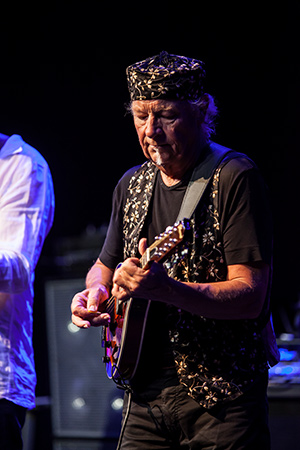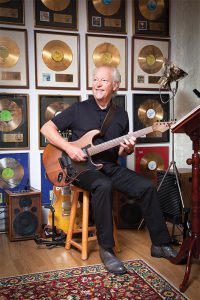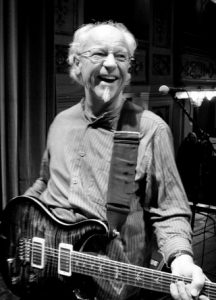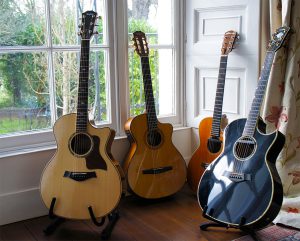Martin Barre
from jethro tull to solo work: electric? yes! acoustic? yes!

“I always tell people, ‘Do what’s yours and don’t worry how good or bad it is, because if it’s yours it’s unique’. People have got nothing to compare it to anyway, and I think originality means so much.”
~ Pierre Bensusan
acoustic.life had the extraordinary opportunity to speak with Martin Barre, renowned Jethro Tull guitarist, to discuss acoustic music. It was a conversation, not an interview, so we picked out some of his thoughts, to share with you.
Martin says, “My job description is ‘electric guitarist.‘” His 1971 performance on Jethro Tull’s Aqualung was ranked #25 on the Guitar World’s 100 Greatest Guitar Solos, “but in the ‘80s,” he told us, “I started playing a lot more acoustic guitar, and I sort of rediscovered how much pleasure there was in discovering all the sounds and nuances of acoustic instruments.”
AL On how acoustic music differs from electric music
MB “In electric music, there’s so much leeway for sloppiness or sort of badly played notes. When you’re playing acoustic music, there’s no margin for error at all. I’ve done acoustic shows in England. We did a show, it was sort of a child’s show for Away With Words. Three acoustic guitars and I played classical guitar, mandolin, Bouzouki, mix and match. Three players and the percussionist. It was a fantastic show, but … whoa, it was incredibly hard work. Incredibly hard…every second was relentless. There was no let up; your head was on the block for every second of that gig.”
MB “On my own, I was completely free to explore all that acoustic side of what I do. The one thing I’ve always really wanted to do is to have a really good quality acoustic album. I was in a transitional period and it was perfect to go in the studio, just me and an engineer, and work a couple of months doing this acoustic album.“
AL On what it takes to perform live music
MB “Live music is about writing music, arranging music and performing music. It’s a whole lifestyle, and the process begins with nothing and a pencil and paper, and it ends with a gig where you play it, and there’s a lot between that has to happen.”
AL On being original
MB “I could never do anything that could vaguely be called a tribute. There’s thousands and thousands of players who are unbelievable players, but they don’t give you anything musically. I’m very tired of that, and I’ve always thought that the people who are clones were the saddest people, because they don’t have their own personality.”
MB “I love melody and I love composition and harmony and space, and just beautiful things in music. I’d rather write melody that people walk around humming, and anybody can do that. Even the most basic musician could.”
AL On musicality
MB “The pinnacle of musicality to me might be Mozart’s Clarinet Concertos, the slow movements.”
AL On being a player, not a collector, of instruments
MB “I use them all. I’ve got three mandolins, a mandola and three bouzoukis, and they’re all on albums. I love mandolin. I just love it, and I love putting it on electric music as well. I just love that texture. It’s such a … it’s almost a percussive instrument as much as a musical one. I play them all, all the time. I don’t have an instrument that isn’t used. I love them to death.”
 AL What’s your go-to acoustic guitar?
AL What’s your go-to acoustic guitar?
MB “A Taylor. I think it’s a 520. I’m not sure what it’s called or what the model number is, I just buy it because it sounds good, but it’s not particularly an expensive one or a fancy one. I go into the music shop and fiddle around with all the guitars, and if there’s one that sounds really lovely then I don’t care if it’s cheap. I care if it’s expensive. It’s all about the sound. And I’ll swap. I’ll change instruments. I’ll sell a Taylor and buy a different model, but right now I think it’s a 520.”
AL If you had the opportunity to see only one acoustic show this year (artist or group), who would it be?
MB “Al Di Meola plays the Beatles !!! or better still ..the trio… sadly not with Paco de Lucia …but that album live !!!!!!!!!”



